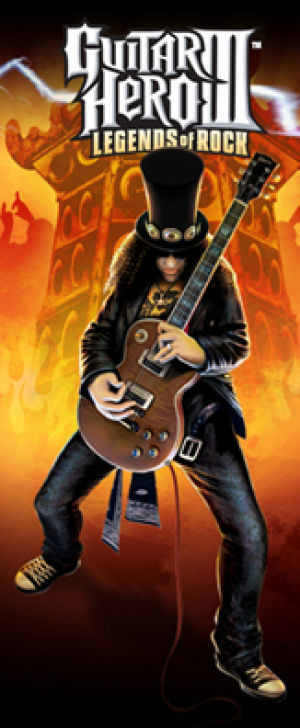Japanese titles tell of life before ‘Guitar Hero’
November 12, 2007
Many college students have been sucked into the novelty of musical games such as the “Guitar Hero” series or the various mixes of “Dance Dance Revolution.” Others are looking forward to this month’s release of “Rock Band,” a game that allows you to use drums, guitars and a microphone to jam out electronically. Sure, they’re fun, but they’re hardly original.
Since the late 1990s Japanese teenagers have been able to enjoy the plethora of games produced by Bemani, the music games division of video game mogul Konami. Impressed by the three musical avenues that “Rock Band” will provide? Bemani has a plethora of instruments, starting with the special keypad used in the “Beatmania” line, the most popular of Bemani’s games. The game has been released in the United States, but its first version graced Japanese shelves nine years prior. The latest incarnation of the Beatmania controller features three white and four black keys stacked on each other, much like piano keys, with a turntable on the right. As corresponding lines cascade down the screen, the player has to hit them just as they pass a certain line on the screen. Think the arrows of “DDR” but much harder to see and with a smaller margin of error.
Want a little more color on the keypad and/or despise the turntable? Try the close cousin of “Beatmania,” 1999’s “Pop’n Music,” also under the Bemani label. “Pop’n” functions much like “Beatmania” on the screen but replaces the boring black, white and red rectangles of its predecessor with cute little anthropomorphic blobs that wiggle down the screen, whose colors and layout match the “Pop’n” controller. Think of that Whack-a-Mole game at Chuck E. Cheese’s, but with round buttons colored red, white, green, blue or yellow. “Pop’n” has not had a U.S. release in arcades or on home consoles.
The Bemani line doesn’t stop there. Remember back in 2005 when the first “Guitar Hero” graced dorm rooms, exciting, shiny and new? It wasn’t new. Bemani released “Guitar Freaks” in Japan way back in 1999. It also had a U.S. release date in that year. The “Guitar Freaks” controller had three fret buttons instead of five, but the concept was the same. Drooling over the sweet “Rock Band” drum set? Yep, already done in 2000, with the game “DrumMania.” And guess which company released “Karaoke Revolution” in the U.S. in 2004?
Unless they go to the trouble of importing a Region 2-compatible PlayStation or PlayStation 2 console, most Americans will not be able to play a majority of these games at home. The games also have the unfortunate side effect of being in Japanese, though figuring out the proper buttons to push is pretty easy to do through trial and error. However, some U.S. arcades have imported the machines. It may be quite a drive to get to them, but it might be worth it just to play “ParaPara Paradise,” a 2000 Bemani arcade title with no U.S. counterpart to date. The game has five sensors that some part of the player’s body has to pass over at a certain time. Sure, it’s easiest to use the hands, but where’s the fun in that?
While “Guitar Hero” is entertaining and “Rock Band” will have its fair share of sycophants, they are definitely not the be-all end-all of music-themed video games. There is life after, or rather before, the rock-centered playlists of American titles, and it is definitely worth trying out.



